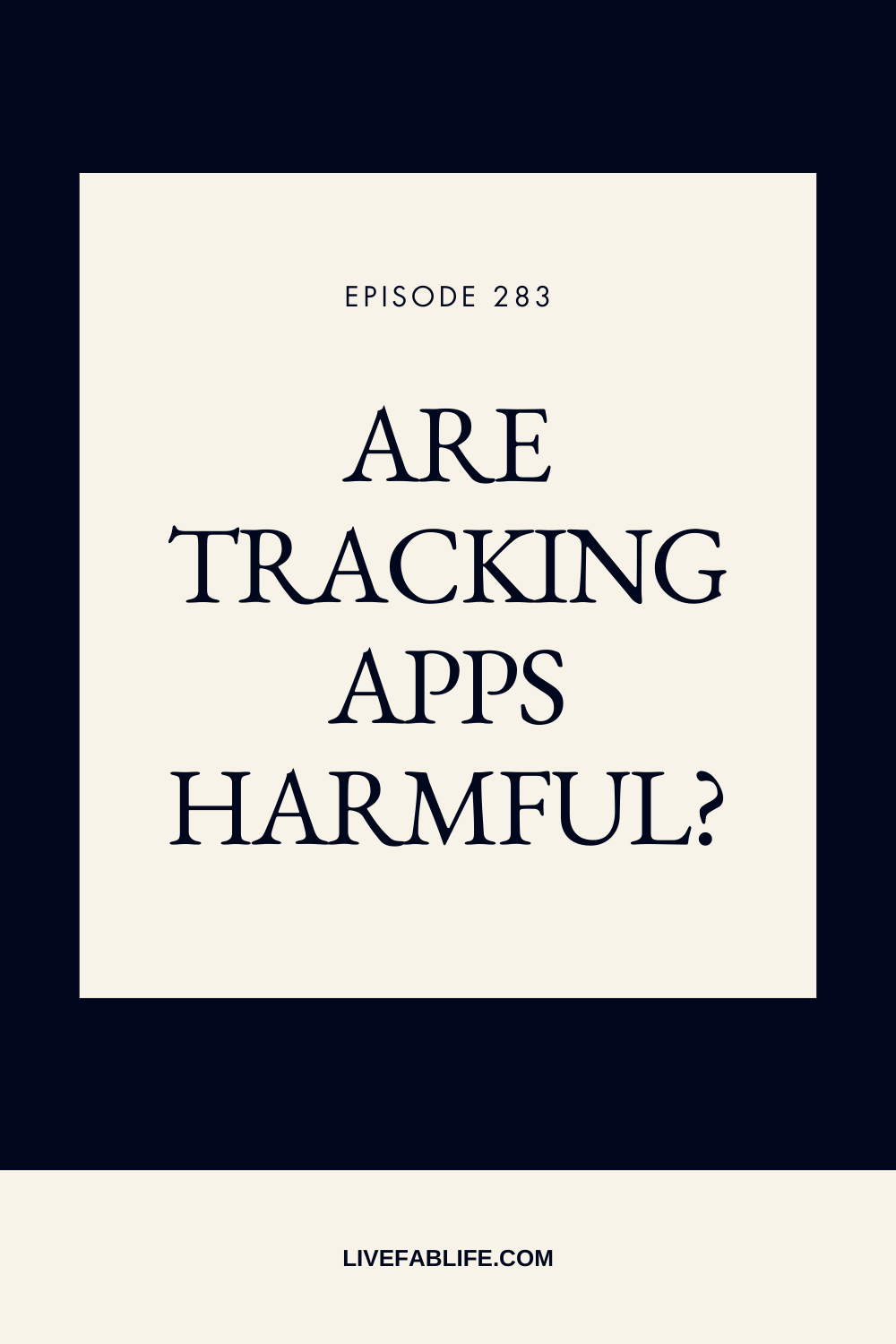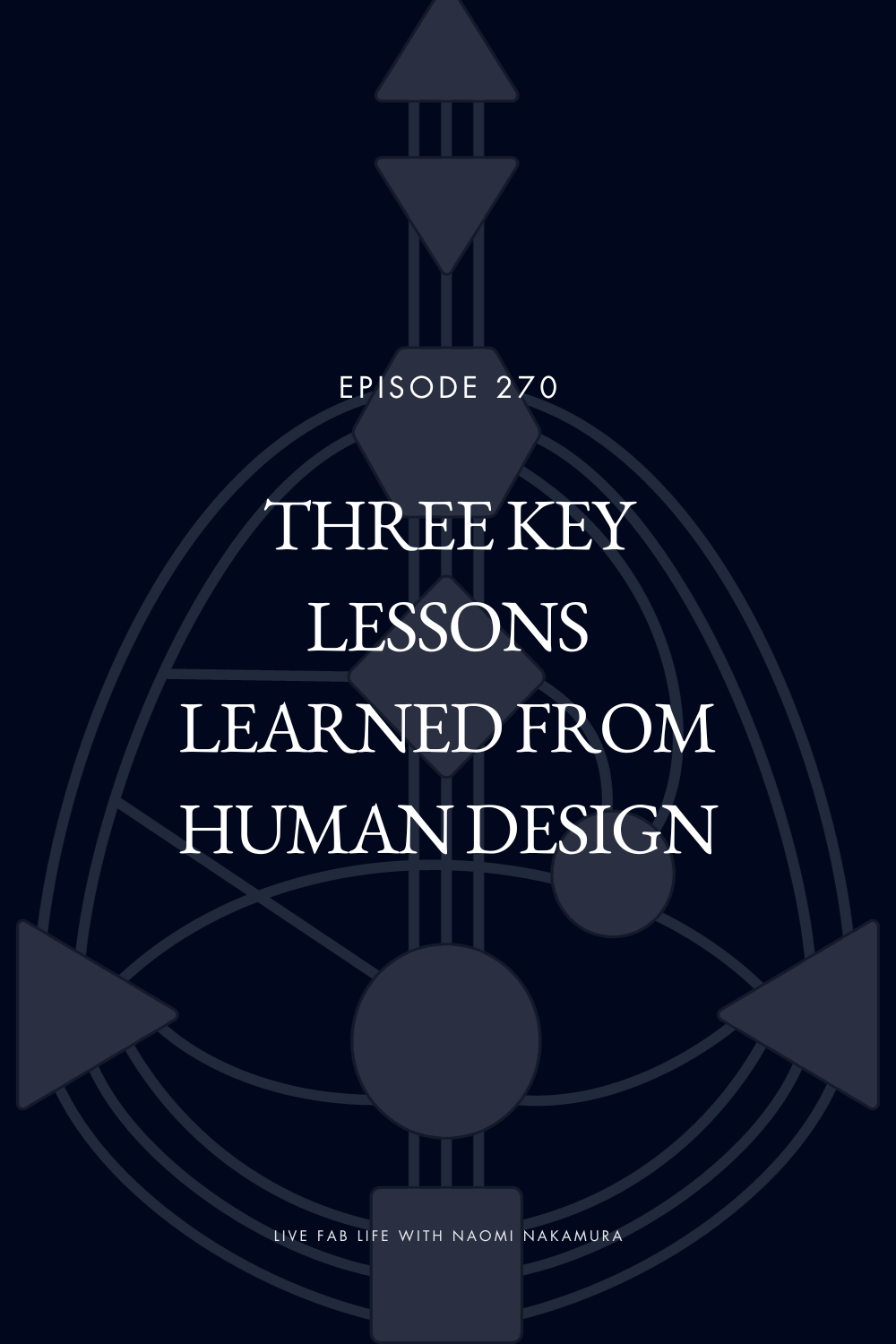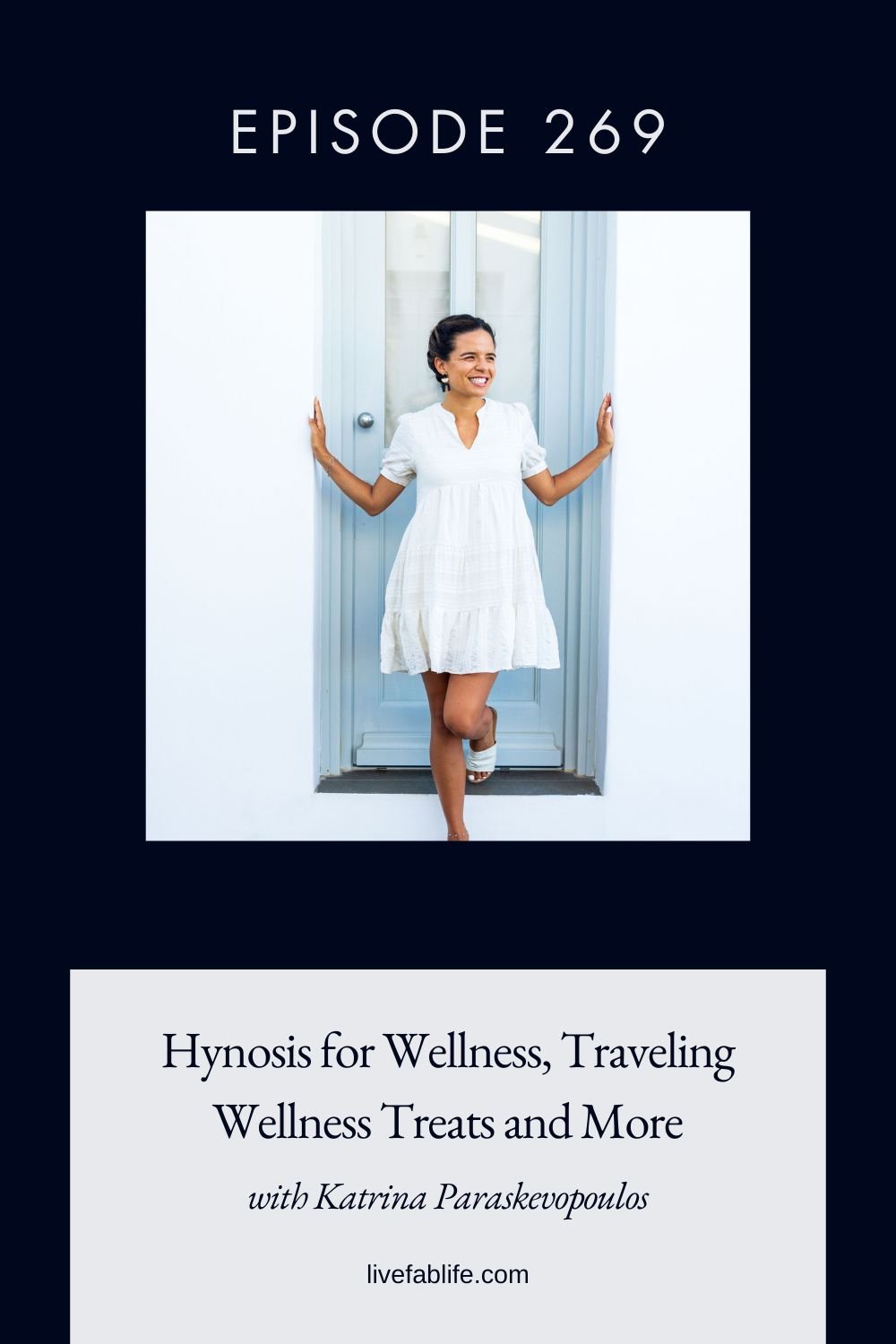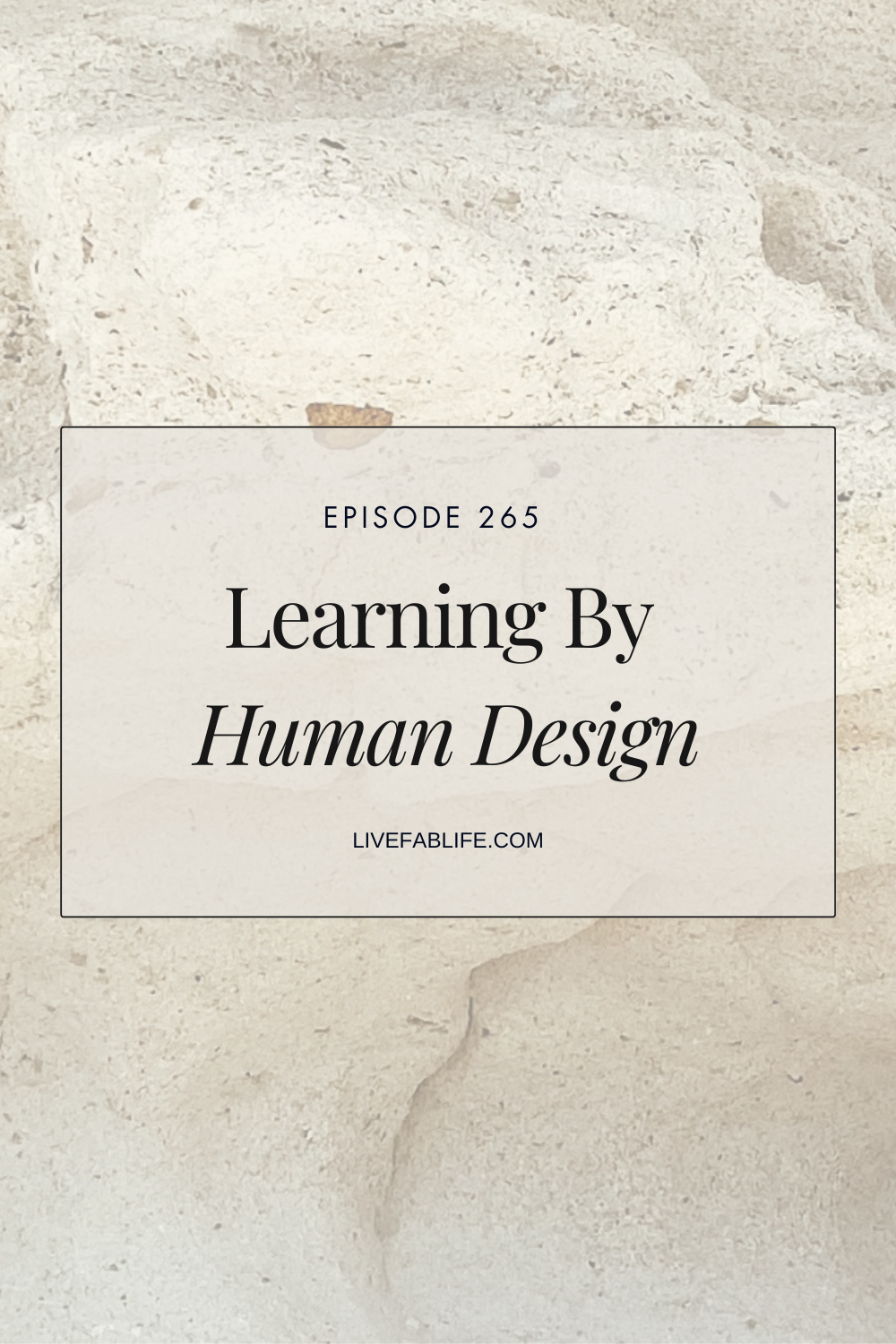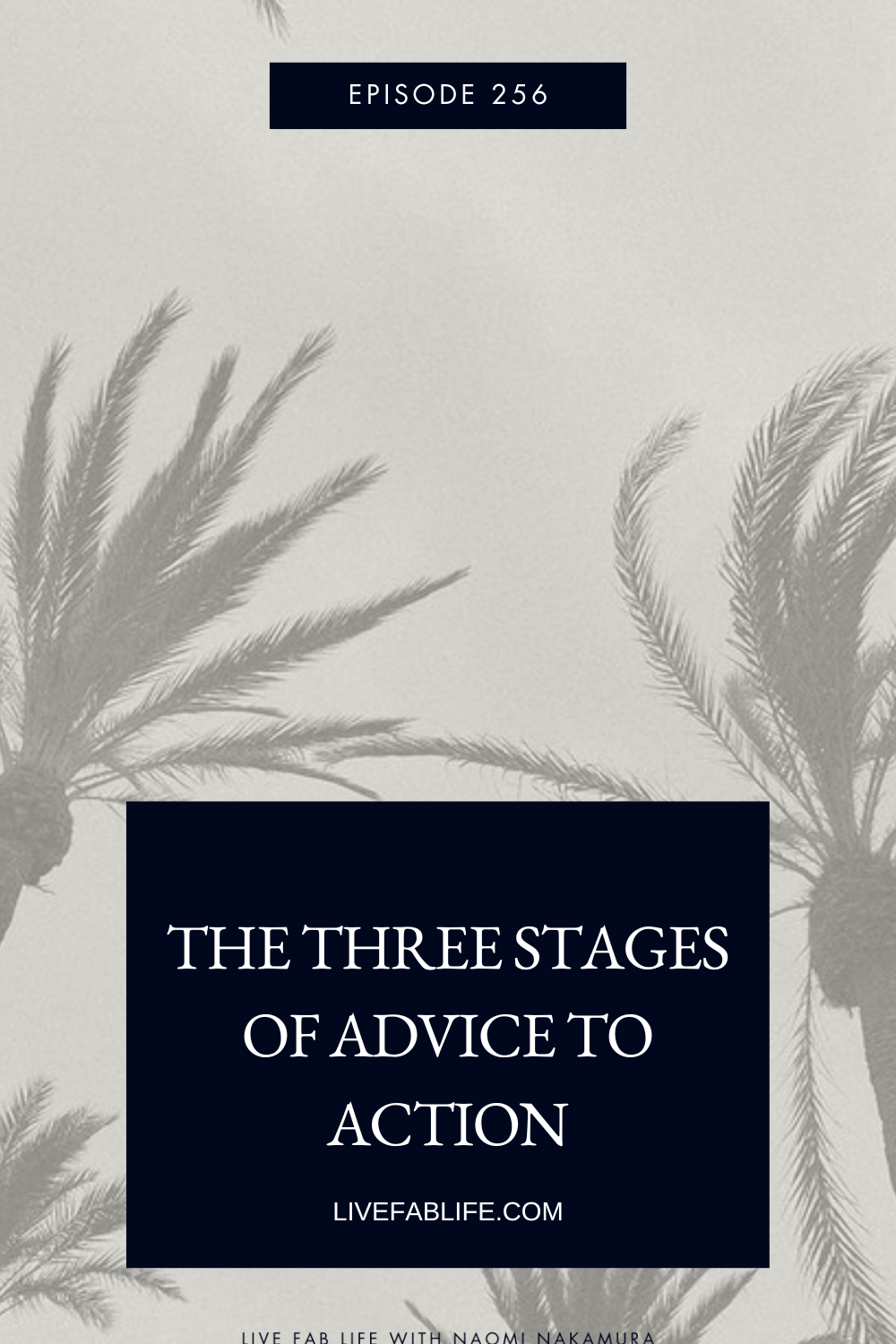Episode 192: The Sacral Center and Shifting My Relationship with Food
As a health coach who has helped clients with energy management to reduce stress, fatigue, and burnout, the Sacral center is one aspect of Human Design that strongly resonates with me because those who defined Sacral centers know when “enough is enough.”
Continuing the conversation from Episode 191, in this episode, I reflect on how learning about my undefined Sacral center has further shifted my relationship with food, tracking, and the apps that I use to support this.
Listen to the Episode:
Mentioned in the Episode:
Episode 182: Human Design Non-Sacral Types and Their Strategies
Episode 191: The Sacral Center and Shifting My Relationship with Exercise and Workouts
Episode 149: A Holistic Approach to Macros with Dr. Jacqueline Bouley Price
FREE GUIDE: Get to Know Your Human Design + 15% off a Human Design Reading
Connect with Naomi:
Share the Episode:
“It’s helped me to not only gain more awareness in how my body responds to certain foods, but I began to recognize how I respond mentally and emotionally to what was putting on my plate – what I wasn’t putting on my plate. This helped me come to accept the current state of my body, the current state of my health, and understand why I had the health issues that I was struggling with. ”
Read the Transcript:
Hey there and welcome back to The Live FAB Life Podcast. I'm your host Naomi Nakamura.
One of the most popular blog posts that I’ve had was something I published before I even had a podcast. And with this show just turning 4 years old last month, this tells you just how old the post is.
It’s a post titled, “How I Changed My Relationship with Food.” And gosh, isn't it so telling that five years later it's still one of the most popular blog posts that continues to get hits every single week.
I think it's because at some point in our lives, we've all struggled with our relationship with food, and it's a relationship that evolves over time, again and again.
So, what I want to talk about today was somewhat of a follow-up to last week's episode, Episode 191, where I talked about the Sacral center, and how with an undefined Sacral center I don’t know when “enough is enough.”
And learning this aspect of my Human Design helped me reframe my relationship with exercise, fitness and working out.
Today I want to expand upon that conversation and talk about how this aspect of my Human Design, having an undefined Sacral center also has shifted my relationship with food.
Now if you haven't listened to past episodes on the Sacral center, there has been quite a few recently, the Sacral center is one of the most important energy centers in Human Design. It governs our creativity, desires, and is the source of our lifeforce energy.
I’ve had a fascination with the Sacral center because those who have this center defined, know when “enough is enough” for them. This means that those of us who don't have the Sacral center defined, me as a Projector included, we don't know when we’ve had enough of something – when “enough is enough.”
As a health coach I’ve spent a lot of time thinking about this and how it applies, in the context of our health.
Those with a defined Sacral center, Generators and Manifesting Generators, they know when they've had enough to sleep, when they've had enough exercise, when they've had enough to eat. They have this built-in self-moderation system.
Those of us who have it undefined, the Projectors, Manifestors and Reflectors, we don't have that internal moderating system. It’s not innate in us.
When I learned this is an element of my Human Design, it’s literally a part of who I am that has helped me reframe, find a new context with so many things.
As I shared last week, with exercise, and by further evolving my relationship with food, tracking what I eat, and the apps that I use to do that.
As I did in the last episode, here’s a brief synopsis of my history with food.
I was a very inactive person in childhood, teenage years, and early adulthood. Growing up, eating healthy wasn’t a thing in my family. I didn't know what it meant to eat healthily was and what I did know or what I thought I knew was basically the Standard American Diet, which we know if not the best source of information.
I also didn't understand that “healthy” is a relative term, that what's healthy for one person may not be healthy for another; what's healthy for me may be unhealthy for you, and what’s healthy for you maybe unhealthy for me. This is the concept of bio-individuality.
So, my story in learning what’s “healthy”, and I’m using air quotes around the world “healthy” started with counting calories.
In the last episode, I shared that when I was 29 years old, I joined a gym and started working with a personal trainer. He was the first person who started talking to me about how I was eating because as it turns out, I wasn’t eating enough to properly fuel my body given how often I was now working out.
He turned me on to a platform called Calorie King, something I haven't used in, gosh, well over 10 years, but at the time it beneficial. It helped me learn at a time where I had zero context, about how, what, and how much to eat fuel my body to support my level of activity.
This was important because I was reading all the “healthy” magazines, like Shape, Fitness, Self and their tools indicated that based on my BMI, I should have limited myself to 1200 calories/day. If you have any context around this, you know that that is a really, really small amount of food, especially for an active person.
So, I slowly had this whole new world open up to me that grew my awareness, not just about exercise but also about how food fuels my body.
Now back then, I lived and died by my caloric intake – how many calories I took in, and how many calories I burned out. This was before I went to nutrition school and before I learned about bio-individuality, but it was the start of my awareness, of even paying attention to this.
Since then, my relationship with food has shifted. It became all about fueling my workouts until I overtrained and depleted my body, and eventually, I became very sick. I had a lot of digestive problems and learned that I had a lot of gut issues.
I had gut dysbiosis, Leaky Gut syndrome, terrible irritable bowel syndrome. That's what ultimately led me to go to nutrition school where I learned about bio-individuality - that what’s healthy for me can be unhealthy for you, and what's healthy for you can be UNhealthy for me.
Then I went through a period of uncovering food sensitivities and intolerances and healing from them. And that led to another shift in my relationship with food.
I used the process of elimination diets to discover what I was intolerant of what I reacted to, and opposite to that - what made my body thrive.
Elimination diets are getting a bad rap these days, and I understand why because it can be used in a very unhealthy way, but I used in the context of healing and discovery and it was very helpful to me because it gave me a framework - a process - that I helped me to understand what was causing my digestive system to flare up, making me feel so unwell.
It was a vital tool in my healing journey, and as a byproduct, it contributed to my ever-evolving relationship with food.
It helped me to not only gain more awareness in how my body responded to certain foods, but also, naturally through the process of tracking, I began to recognize how I respond mentally and emotionally to what was putting on my plate – what I wasn’t putting on my plate.
And that was really the crux of that really popular blog post, I mentioned at the start of this episode.
And that helped me come to accept the current state of my body, the current state of my health, and understand why I had the health issues that I was struggling with. Health issues that the conventional medical world wouldn't necessarily consider critical, yet it critically impacted the quality of day-to-day life.
But, while the process of an elimination diet was a learning experience, it was equally a stressful experience. It can be overwhelming, especially when you have a lot of things that you're dealing with. But at the end of the day, it’s what helped me develop body, mind, and emotional awareness around how I responded to food I was eating and wasn’t eating.
All that being said, there was still a struggle with the ability to moderate me and to know when enough is enough.
Let me share some examples to help illustrate this.
I’m someone who can easily eat – insert any food in one sitting.
I don't have the ability to moderate myself and it drives me crazy. I’ve really beaten myself up about it.
And as a side note – this inability to self-moderate doesn’t just apply to food (as illustrated in Episode 191) but since we're talking about food in this episode, these are the examples I'm sharing today.
In the last episode, Episode 191, I referenced Gretchen Ruben’s book, “Better Than Before” when she talks about moderators vs abstainers. I'm definitely an abstainer, where I have to avoid things altogether.
Because when I indulge, it gets to the point where it’s not even enjoyable anymore. I’ve eaten an entire pie, or an entire pint of ice cream, half a tub of almond butter – that’s literally left me feeling so sick that wasn't enjoyable by any means. And yet I still couldn’t moderate myself.
As I said, I’d really beat myself up about it; I couldn't understand how some people could open a bag of chips take two bites, and then put it away. How someone could have a bag of chips in their kitchen and have it last 2, 3, or even 4 days when I can't even have it last 20 minutes in my house.
It was frustrating – why couldn’t I do that? Why couldn’t I be one of those Moderators?
Then I learned about Human Design, and how in MY Human Design, I have an undefined Sacral center where I don’t know when enough is enough.
This really, really reframed things for me. It really helped me come to an understanding – more awareness - of how I’m built. In turn, I’ve come to have more grace and acceptance for myself.
In my evolving relationship with food, I went through tracking with a lack of awareness and, in my opinion, an unhealthy way, to have it be a triggering thing as I went through my healing journey.
Now that I’m in a different place, with a different mindset, different level of awareness, different relationships, I’ve actually been tracking my food again.
In early 2020 I started working with Dr. Jacqueline Bouley Price, who I had on in Episode 149. Before we started working together, I explained my past experiences and relationships with tracking macros and calories, and in my experience, she approaches it in a way that feels very nurturing to me.
She sets my macros and calorie targets every week I check in with her, rarely about the numbers, but more about my habits and emotions around the past week.
There’s a couple of aspects of her approach that makes this a totally different experience for me:
- I don’t track how many calories I burn from workouts. While I have a vague idea of what that number is because I do Apple Fitness workouts and my Apple watch naturally tracks that, along with my Oura ring, I don’t pay attention to it. At all. And I’m being very truthful about this.
Why is this important? Because I don’t have a “calories in vs calories out” mentality.
- The other thing I do is to preload MyFitnessPal at the start of my day rather than as I eat throughout the day.
Doing this gives me an idea of what treats and snacks I can fit into my day. And ironically, this helps me not feel deprived. Although, again, very truthfully, I don’t feel deprived because if I really want to eat something, I’ll eat it – I’m just more mindful about it.
This time around I’m actually finding tracking to be eye-opening because it helps me see and put into context, how much I'm actually eating. I find myself asking, “Do I really want to eat this? Do I really want or need to eat this much of this? Is this bringing me joy?”
Because again remember, without a defined Sacral center, I don't have that innate ability to moderate myself.
So having this tool to guide me and give me insight and context, really, really helps me improve my relationship with food.
Dr. Jacqueline can tell you that I don't hit my macros on days. In fact, it’s a very, very rare day that it happens. I do try and stick within a reasonable number of my daily calorie target on either side, below or above, and I also take a weekly glance at it.
Another way this helps me is to correlate and be mindful of what are the foods that I'm eating, if I have too much of it will cause my body to have a reaction.
For example, grains. My body functions much better when it’s grain-free. There was a time when I couldn’t tolerate grains at all (I really missed sushi!), but through my healing process, I’m now able to tolerate it, but not in huge amounts and not all the time.
And I do enjoy grains, so I do allow myself to have granola, gluten-free bread, and treats, sushi, but having too much of it in a concentrated period wrecks my digestive system and my complexion.
So, tracking helps me keep track where, if my digestive system is acting up, and we all know what that means by really acting up - unhealthy poop, really bad bloating and gas, tracking helps me I can actually put into context like oh yeah, I've actually been eating a lot of grains lately so I probably should back off on that for a bit.
It’s helping me observe:
- When how much I’m eating is too much
- When I'm eating as an emotional or stress response, or when I’m mindlessly eating
Other than sleep, I’d say that the biggest influencer on how I feel every day is food. So now that I’m in a different place, tracking macros and calories feels less triggering, and in fact, is a helpful check and balance for me.
Like everything, it’s an experiment, and I do have a 3 Line in my Human Design, which means I learn best from experiences, trial and error processes, so it makes sense to me how I could have an unhealthy and healthy experience doing the same thing.
For me, it all comes down to my personal levels of body, mind, and emotional awareness, and in the context that my Human Design has come to lend me and less about what someone else’s opinions, reactions, experiences, and advice are.
It’s been an experience in developing not just awareness, but self-trust, and self-love – and isn’t this we want to hope for and want for ourselves?
As I shared in the last episode if you've been struggling in your relationship with exercise, fitness, food, tracking, your health, whatever it may be, perhaps looking at your Human Design might shed light on a new way to look at things, and what insights you glean from it that can help you gain some awareness with whatever it is you're struggling with.
Maybe it can help reframe some things and help you move toward whatever outcome you're searching for.
And if you're new to Human Design, I’ve created a guide called, “Get to Know Your Human Design.” It’ll walk you through where you can find your Human Design chart and then help you understand the very basics of it.
And if you want more than the very basics, when you sign up for this guide, you’ll also receive a code for 15% off a Human Design reading with me. You'll also receive a series of emails that’ll walk you through exactly what you can expect in that reading.
I hope this conversation has been helpful and insightful in how you might be able to rethink things and your relationship with them. Thank you so much for listening, and as always, and I'll see you right back here again next time. Bye for now!
Naomi Nakamura is a Health x Human Design coach who’s creating a healthier society through aligned energy.
She blends a bespoke mix of Functional Nutrition and Human Design to help others shift into alignment to leverage and correctly manage their energy to support their body, mind, and spirit.
She believes that when we embrace our authenticity and lean into our bio-individuality, we naturally live a life of freedom, empowerment, and optimal health.
Naomi resides in the San Francisco Bay Area and can often be found exploring the area with her puppy girl, Coco Pop!
Connect with Naomi on: Instagram
| Pinterest




